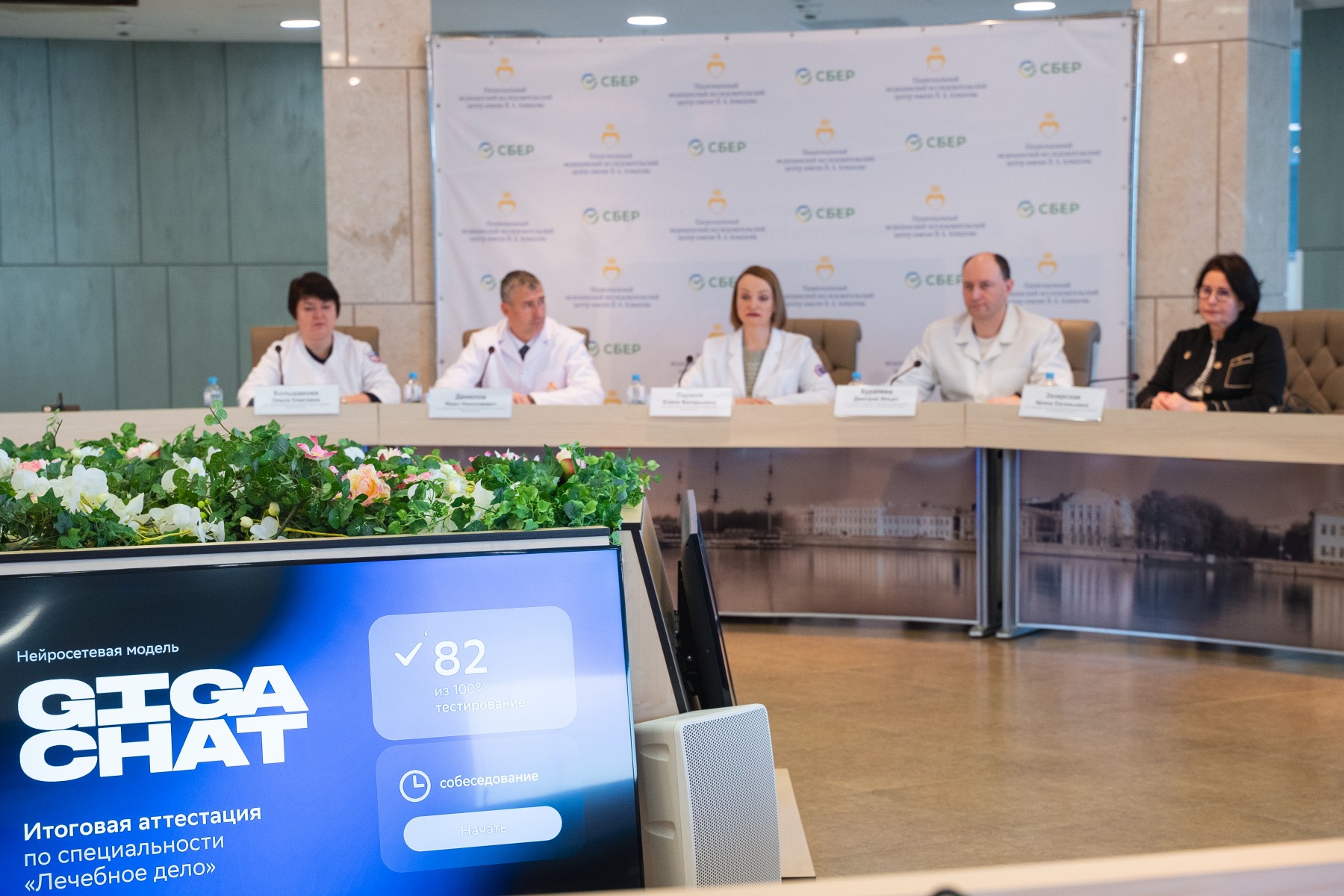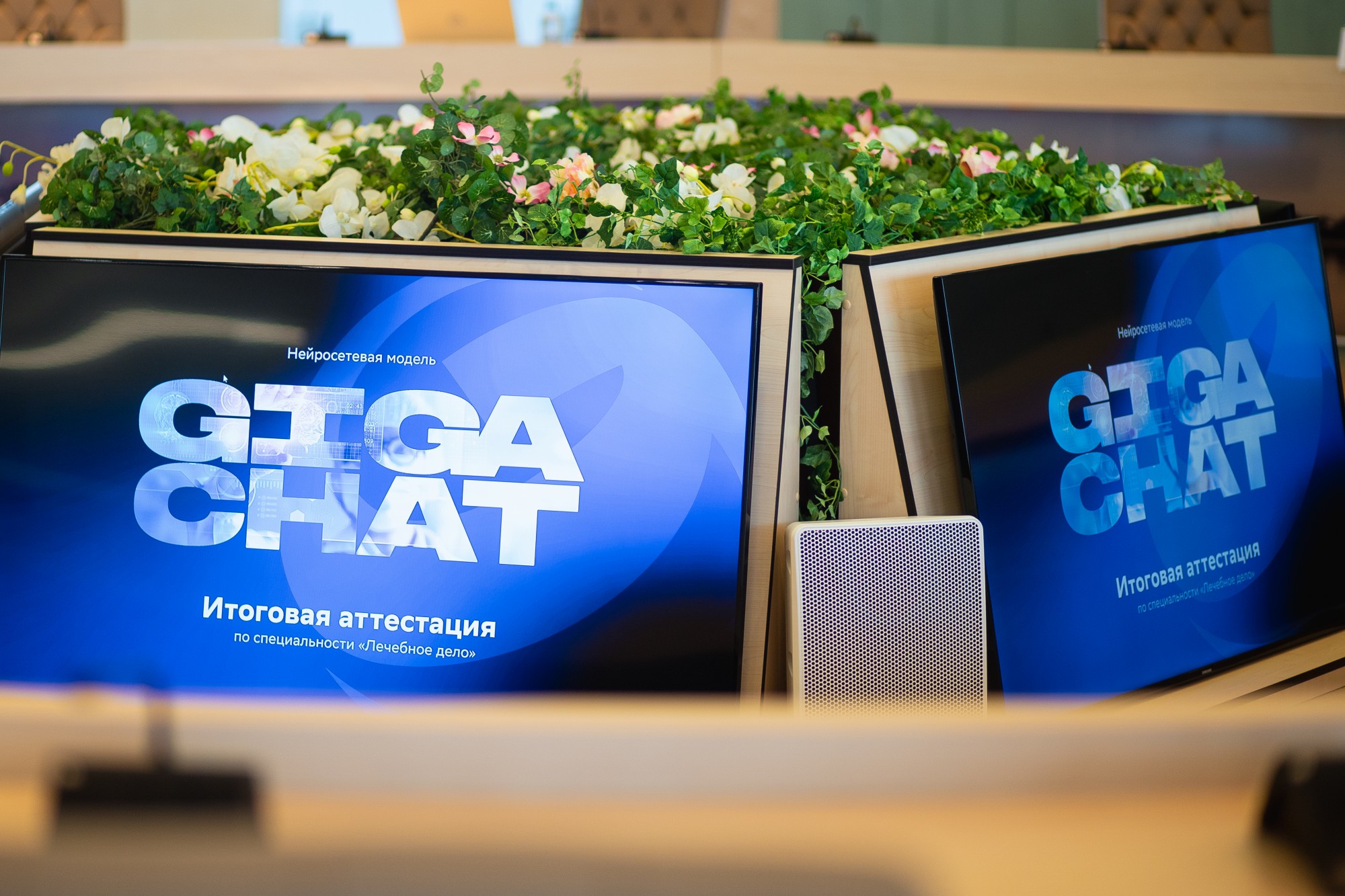
Sber's neural network model, GigaChat, was one of the first in the world to pass the General Medicine exam required to qualify as a medical doctor. Sber's artificial intelligence passed the test and answered the questions, just like any student who has completed six years of medical university according to the state education standard. The final grade was 4 (good). The examination panel consisted of professors of internal medicine, surgery, obstetrics and gynecology from the Institute of Medical Education at the Almazov National Medical Centre.
The standard set of oral examination tasks contains three cases in internal medicine, surgery, obstetrics and gynecology and 3 to 5 questions about them ('state the likely diagnosis', 'make a treatment plan', 'prescribe additional tests', etc.). GigaChat was also tested with 100 questions. It scored 82% with a pass threshold of 70%.
Sergey Zhdanov, Director of Sberbank's Health Industry Centre:
“Our neural network model, GigaChat, is evolving very rapidly, mastering more and more areas of expertise. We and our partners across the country will continue to develop digital solutions and technologies for medicine and health. Today, I would like to acknowledge the role and thank the team of the Almazov Centre, who oversee the training and validation of the model. The first stage — passing the medical exam — has been completed. New challenges and the discovery of new applications based on existing solutions lie ahead.
In the future, the model could become the basis for the creation of a doctor-patient assistant, providing new conditions for care and information about one's own health and becoming an essential support for clinicians in their daily practice. Using large language models and their successors will become one of the key technologies for developing patient-centered care.”
Evgeny Shlyakhto, Director General of Almazov National Medical Research Centre, President of the Russian Society of Cardiology:
“The project to train the large language model GigaChat to the level of a medical school graduate has been a great challenge for Almazov Centre. Several hundred teachers and researchers are involved in the project. Residents and students have actively participated in the work. We are satisfied with the current results and will continue to train the model. Together with Sber, we have already planned a number of GigaChat-based applications for medical institutions, patients and doctors, and their development will start this year. I would like to express my sincere gratitude and appreciation to the management of Sberbank for the trust they have placed in our Centre by choosing us as a partner in such an ambitious and socially important project.”

The fact that the GigaChat model passed the test is the result of effective cooperation between specialists from Sberbank's Health Industry Centre, Almazov Centre and the GigaChat development team. It took six months to train the algorithm. A dataset of 42 GB of specialised information was used, including teaching materials recommended for students at Russian medical universities, monographs, guidelines, scientific articles and anonymised medical data.

